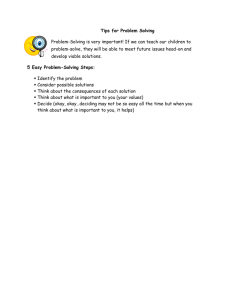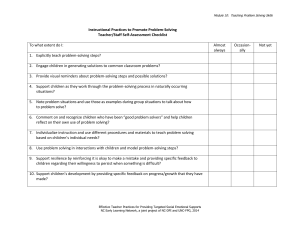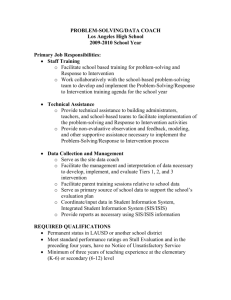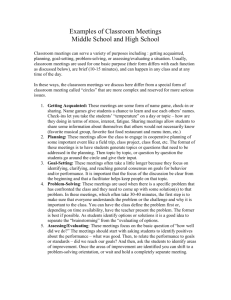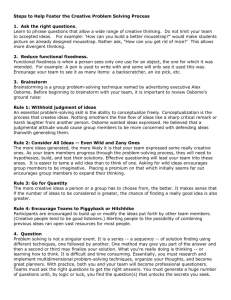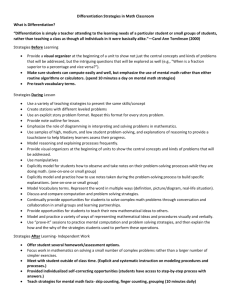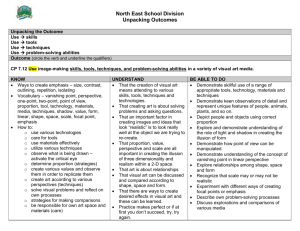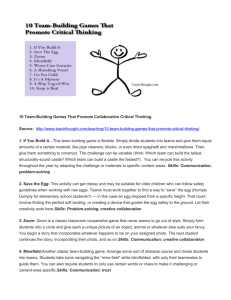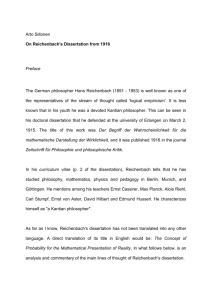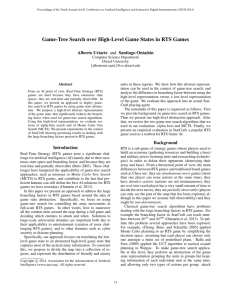CSCE155 Introduction to Computer Science I
advertisement
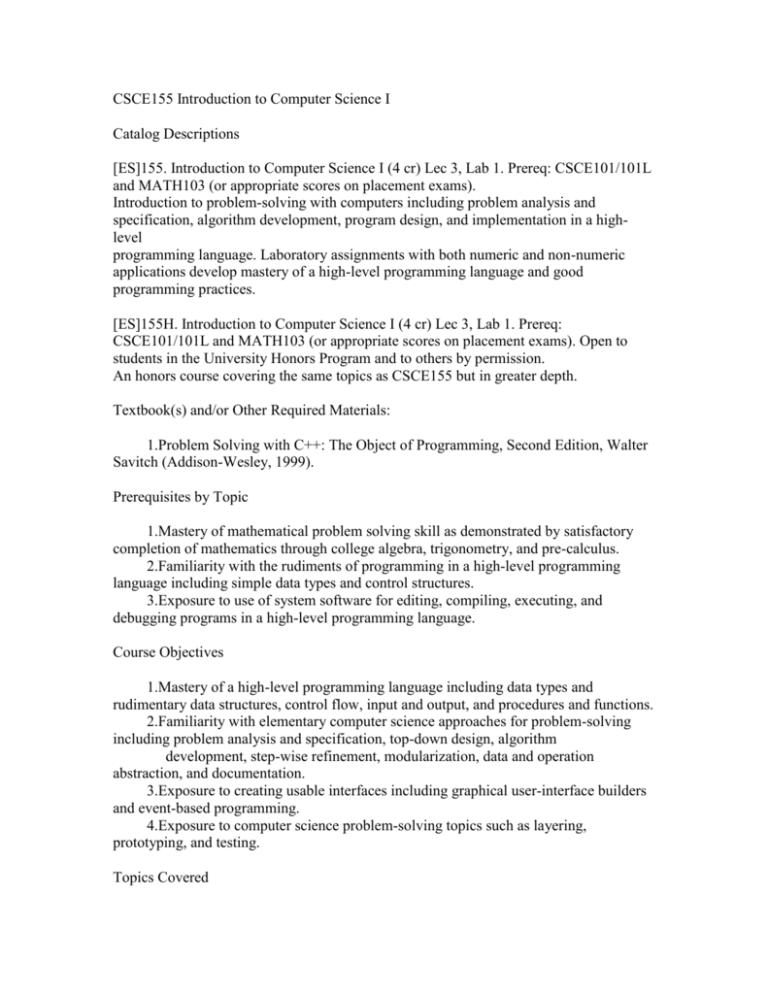
CSCE155 Introduction to Computer Science I Catalog Descriptions [ES]155. Introduction to Computer Science I (4 cr) Lec 3, Lab 1. Prereq: CSCE101/101L and MATH103 (or appropriate scores on placement exams). Introduction to problem-solving with computers including problem analysis and specification, algorithm development, program design, and implementation in a highlevel programming language. Laboratory assignments with both numeric and non-numeric applications develop mastery of a high-level programming language and good programming practices. [ES]155H. Introduction to Computer Science I (4 cr) Lec 3, Lab 1. Prereq: CSCE101/101L and MATH103 (or appropriate scores on placement exams). Open to students in the University Honors Program and to others by permission. An honors course covering the same topics as CSCE155 but in greater depth. Textbook(s) and/or Other Required Materials: 1.Problem Solving with C++: The Object of Programming, Second Edition, Walter Savitch (Addison-Wesley, 1999). Prerequisites by Topic 1.Mastery of mathematical problem solving skill as demonstrated by satisfactory completion of mathematics through college algebra, trigonometry, and pre-calculus. 2.Familiarity with the rudiments of programming in a high-level programming language including simple data types and control structures. 3.Exposure to use of system software for editing, compiling, executing, and debugging programs in a high-level programming language. Course Objectives 1.Mastery of a high-level programming language including data types and rudimentary data structures, control flow, input and output, and procedures and functions. 2.Familiarity with elementary computer science approaches for problem-solving including problem analysis and specification, top-down design, algorithm development, step-wise refinement, modularization, data and operation abstraction, and documentation. 3.Exposure to creating usable interfaces including graphical user-interface builders and event-based programming. 4.Exposure to computer science problem-solving topics such as layering, prototyping, and testing. Topics Covered 1.Problem-solving overview including problem analysis and specification, algorithm development, step-wise refinement, and testing. [1 week] 2.Language fundamentals, program organization, and basic data types including variables, constants, operators, expressions, and assignment. [2 weeks] 3.Input and output including interactive and file I/O, streams, and formatting. [1 week] 4.Control-flow including conditional execution (with boolean logic) and loops. [2 weeks] 5.Abstractions for problem-solving including top-down design, modularization, and operation and data abstractions. [1 week] 6.Reusable components, predefined functions, and standard libraries. [2 weeks] 7.Programmer-defined procedures and functions including parameter passing, scope, overloading, and recursion. [2 weeks] 8.Data constructs including structures, classes, abstract data types, objects, and arrays. [2 weeks] 9.Event-based programming using a graphical user interface builder and illustrating prototyping and layering. [2 weeks] Class/Laboratory Schedule Lecture: 45 hours Laboratory: See CSCE 155L Description. Date 9/10/99, S. Reichenbach Revised 9/28/99, S. Reichenbach

